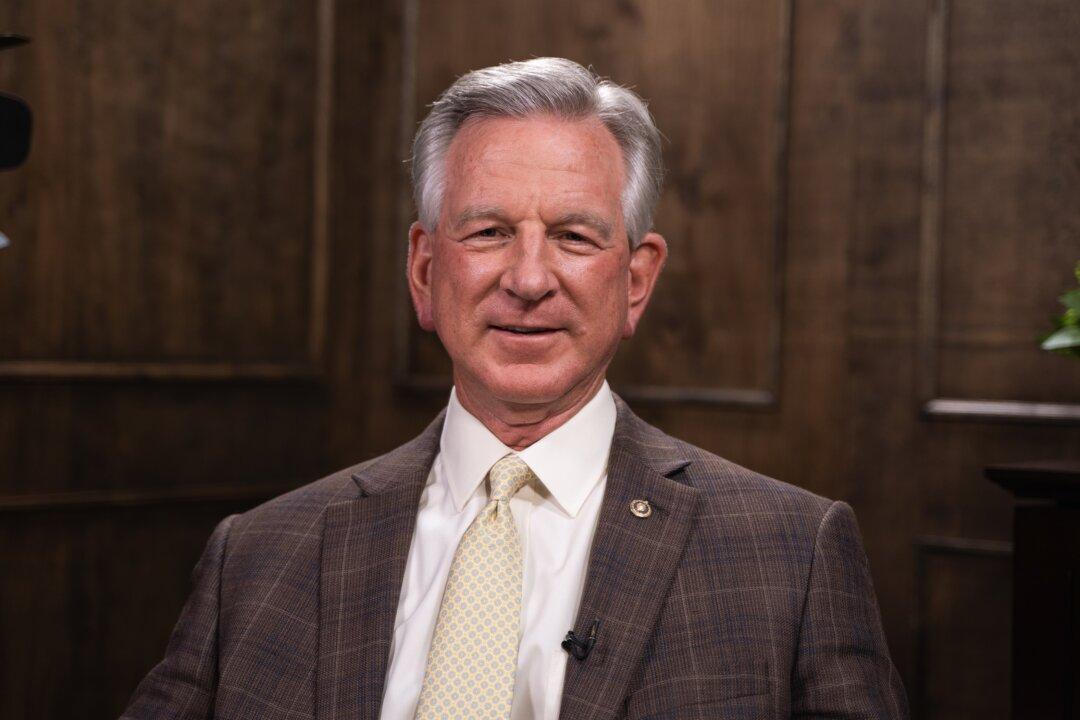China is America’s foremost adversary, Sen. Tommy Tuberville (R-Ala.) told The Epoch Times this week.
Tuberville, a former college football coach who is in his first term in the Senate, explained why he made blocking investments into China-based entities one of his first legislative priorities.






